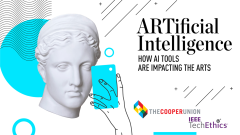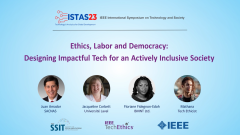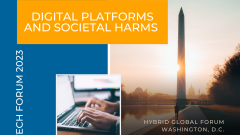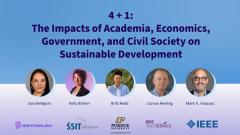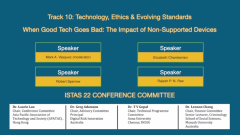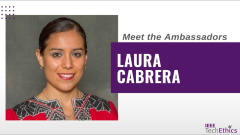About the Video: This panel discusses several COVID-19-related data aggregations and visualization projects currently underway, as well as the social and ethical considerations that come with these efforts.
About the Panelists:
- Bruce Mellado, a Full Professor at the University of the Witwatersrand and a Senior Researcher of iThemba LABS, is the Director of the Institute for Collider Particle Physics. Prof. Mellado is the National Contact Physicist of South Africa at the ATLAS experiment at CERN and is the co-Chair of the Nuclear Particle and Radiation Division of South African Institute of Physics. He is the recipient of several awards and fellowships. Prof. Mellado is an internationally acclaimed researcher of the National Research Foundation of South Africa. Prof. Mellado is an expert on the Higgs boson a sub-atomic particle that is thought to give matter its mass and was a leading participant in its discovery that was announced in 2012 and led to the Nobel Prize in Physics being awarded in 2013 to Francois Englert and Peter W. Higgs. He has attained and continues to have a number of positions of leadership internationally and to organise conferences and workshops. Currently, Prof. Mellado works with an interdisciplinary team of about 40 scientists from Southern Africa, affiliated with universities and other institutions in Botswana Eswatini, Mozambique, Namibia, Zimbabwe and South Africa. A Dashboard that includes visualization and predictive modelling was launched in March. This modelling apparatus is validated on the wealth of data from other countries that have undergone spread and its suppression with non-pharmaceutical interventions. Prof. Mellado earned his Ph.D. from Columbia University.
- Julia Stoyanovich is an Assistant Professor at New York University in the Department of Computer Science and Engineering at the Tandon School of Engineering, and at the Center for Data Science. Julia's research focuses on responsible data management and analysis practices: on operationalizing fairness, diversity, transparency, and data protection in all stages of the data acquisition and processing lifecycle. She established the Data, Responsibly consortium (https://dataresponsibly.github.io/), and served on the New York City Automated Decision Systems Task Force, by appointment from Mayor de Blasio. Julia developed and is teaching courses on Responsible Data Science at NYU (https://dataresponsibly.github.io/courses). In addition to data ethics, Julia works on management and analysis of preference data, and on querying large evolving graphs. She holds M.S. and Ph.D. degrees in Computer Science from Columbia University, and a B.S. in Computer Science and in Mathematics and Statistics from the University of Massachusetts at Amherst. Julia's work has been funded by the NSF, BSF and by industry. She is a recipient of an NSF CAREER award and of an NSF/CRA CI Fellowship.
- Ruben Usamentiaga is an Associate Professor in the Department of Computer Science and Engineering at the University of Oviedo. He received his M.S. and Ph.D. degrees in Computer Science from the University of Oviedo in 1999 and 2005, respectively. In recent years he has been working on several projects related to computer vision and industrial systems. His research interests include real-time imaging systems and thermographic applications for industrial processes.
- Mark A. Vasquez (moderator) is a Certified Association Executive (CAE) with over 25 years of experience in association management at IEEE. He serves as the program manager for IEEE TechEthics, which drives conversations about the ethical and societal impacts of technology. In this capacity, he works to develop relationships with others in the technology ethics community, produces events, convenes thought leaders, and more. Mark is an engineering graduate of The Cooper Union. Recorded on 28 May 2020 as part of the IEEE TechEthics Conversations Series.
Produced in collaboration with the IEEE Humanitarian Activities Committee (HAC) and the IEEE Special Interest Group on Humanitarian Technology (SIGHT). Brought to you in part by a grant from the IEEE Foundation.
About the Video: This panel discusses several COVID-19-related data aggregations and visualization projects currently underway, as well as the social and ethical considerations that come with these efforts.
 Cart
Cart Create Account
Create Account Sign In
Sign In

